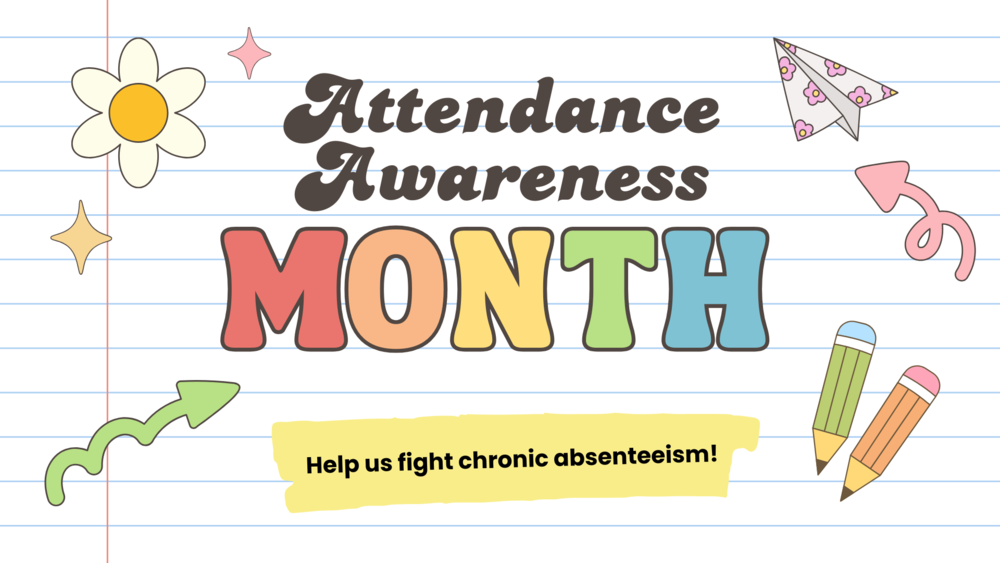September is Attendance Awareness Month!
We want to raise awareness about the importance of attendance and reduce chronic absenteeism in our schools. Attending school on a regular basis is incredibly important. Did you know that missing 10%—or 17 days—of the school year makes it difficult to learn to read by 3rd grade, succeed in middle school, and graduate high school? Just 2 absences per month can significantly impact academic success.
The path to academic success is to be here today so that we are ready for tomorrow! We love seeing you at school each day.
Why Every Day Matters
When students miss school, they miss more than just lessons. They miss connections with teachers and classmates, hands-on learning experiences, and the daily building blocks that create academic confidence. Research shows that students with good attendance are more likely to:
Develop stronger reading and math skills
Build positive relationships with teachers and peers
Feel more connected to their school community
Graduate on time and pursue post-secondary opportunities
What Counts as Chronic Absenteeism?
A student is considered chronically absent when they miss 10% or more of school days, regardless of whether the absences are excused or unexcused. That's just 17 days in a typical school year.
How Families Can Support Good Attendance
Establish routines: Create consistent bedtime and morning routines to help your child be ready to learn.
Plan ahead: Schedule medical appointments and family trips during school breaks when possible.
Communicate: If your child must be absent, contact the school promptly and help them catch up on missed work.
Address barriers: If health issues or other challenges are affecting attendance, reach out to school staff—we're here to help find solutions.
Talk about school positively: Help your child understand that school is their important "job" and that their presence matters to their teachers and classmates.
We're Here to Help
If your family is facing challenges that impact school attendance, please don't hesitate to reach out. Our counselors, social workers, and administrative teams can connect you with resources and work together to remove barriers to regular attendance.

